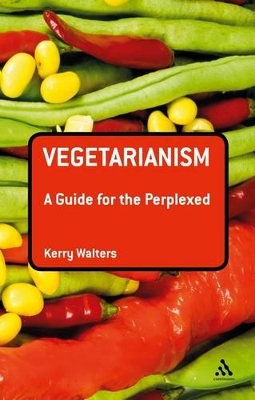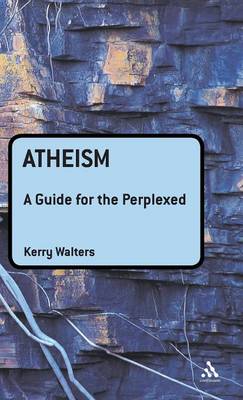Guides for the Perplexed
2 total works
The choice of whether or not to consume animals is more than merely a dietary one. It frequently reflects deep ethical commitments or religious convictions that serve as the bedrock of an entire lifestyle. Proponents of vegetarianism frequently infuriate nonvegetarians, who feel that they're being morally condemned because of what they choose to eat. Vegetarians are frequently infuriated by what they consider to be the nonvegetarians' disregard for the environment and animal-suffering. Vegetarianism: A Guide for the Perplexed offers a much needed survey of the different arguments offered by ethical vegetarians and their critics. In a rigorous but accessible manner, the author scrutinizes the strengths and weaknesses of arguments in defense of vegetarianism based on compassion, rights, interests, eco-feminism, environmentalism, anthrocentrism, and religion. Authors examined include Peter Singer, Tom Regan, Carol J. Adams, and Kathryn Paxton George. As the global climate crisis worsens, population increases, and fossil fuels disappear, ethical and public policy questions about the ethics of diet will become ever more urgent.
This book is a useful resource for thinking through the questions.
This book is a useful resource for thinking through the questions.
This title moves beyond the polemics to present an overview of atheism that is rigorous yet accessible. Interest in atheism has surged since the 'New Atheism' trinity of Sam Harris, Richard Dawkins, and Christopher Hitchens launched their attack on religious belief. Their militant, in-your-face style has delighted readers who are already nonbelievers and infuriated theists, and in the process made them best-selling authors. But the cost of their approach is that the current cultural and intellectual dialogue about atheism frequently generates more heat than light: acrimony replaces reasoned investigation, polemic overpowers philosophical analysis, and too often the outcome is confusion rather than truth. "Atheism: A Guide for the Perplexed" moves beyond the polemics to present an overview of atheism that is rigorous but still accessible to the educated layperson as well as the undergraduate student in philosophy and theology courses.
After a preliminary investigation of what atheists mean when they use the words 'atheism' and 'God' - a much more complex investigation than one might suspect - the book: explores the differences and similarities between 'old' and 'new' atheism (the primary distinction is that the latter relies heavily on science whereas the former relied on philosophy and is uncompromisingly hostile to religion); places atheism of either variety in context by examining the naturalistic worldview that grounds it; provides a short historical sketch of atheism; examines a number of arguments against God-belief; investigates whether an atheist worldview is consistent with ethics and a sense of purposefulness; asks is an atheist 'spirituality' is possible; inquires into whether the current militancy against religious belief is pertinent or a red herring; and, concludes with a few suggestions for continued dialogue between believers and nonbelievers. The goal throughout is to present a balanced, non-partisan introduction to the worldview, principles, and arguments of atheism that highlights the positions strengths as well as its weaknesses.
"Continuum's Guides for the Perplexed" are clear, concise and accessible introductions to thinkers, writers and subjects that students and readers can find especially challenging - or indeed downright bewildering. Concentrating specifically on what it is that makes the subject difficult to grasp, these books explain and explore key themes and ideas, guiding the reader towards a thorough understanding of demanding material.
After a preliminary investigation of what atheists mean when they use the words 'atheism' and 'God' - a much more complex investigation than one might suspect - the book: explores the differences and similarities between 'old' and 'new' atheism (the primary distinction is that the latter relies heavily on science whereas the former relied on philosophy and is uncompromisingly hostile to religion); places atheism of either variety in context by examining the naturalistic worldview that grounds it; provides a short historical sketch of atheism; examines a number of arguments against God-belief; investigates whether an atheist worldview is consistent with ethics and a sense of purposefulness; asks is an atheist 'spirituality' is possible; inquires into whether the current militancy against religious belief is pertinent or a red herring; and, concludes with a few suggestions for continued dialogue between believers and nonbelievers. The goal throughout is to present a balanced, non-partisan introduction to the worldview, principles, and arguments of atheism that highlights the positions strengths as well as its weaknesses.
"Continuum's Guides for the Perplexed" are clear, concise and accessible introductions to thinkers, writers and subjects that students and readers can find especially challenging - or indeed downright bewildering. Concentrating specifically on what it is that makes the subject difficult to grasp, these books explain and explore key themes and ideas, guiding the reader towards a thorough understanding of demanding material.

